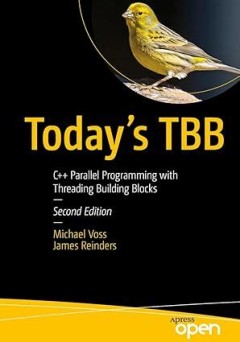Filter by

2D Nanostructures for Optoelectronic and Green Energy Devices
In this Special Issue “2D Nanostructures for Optoelectronic and Green Energy Devices”, we have collected nine high-quality, original research papers and one comprehensive review paper by outstanding scientists and engineers from relevant fields, covering the topics in optical properties and couplings in 2D nanostructures, spectroscopic analysis in atomic scale, 2D transistors, 2D optoelectr…
- Edition
- -
- ISBN/ISSN
- 9783036572581
- Collation
- -
- Series Title
- -
- Call Number
- -

4º Congresso Português de Building Information Modelling vol. 1 - ptBIM
Livro de atas do Congresso ptBIM 2022, onde se promove um fórum de discussão técnico-científica em língua Portuguesa nas metodologias ‘Building Information Modelling’ (BIM), envolvendo a participação ativa das comunidades profissional e académica das áreas de Arquitetura e Engenharia. Pretende-se enfatizar os problemas e esforços de implementação na Indústria da Construção e …
- Edition
- -
- ISBN/ISSN
- -
- Collation
- -
- Series Title
- -
- Call Number
- -

4º congresso português de ‘Building Information Modelling’ vol. 2 - ptBIM
Livro de atas do Congresso ptBIM 2022, onde se promove um fórum de discussão técnico-científica em língua Portuguesa nas metodologias ‘Building Information Modelling’ (BIM), envolvendo a participação ativa das comunidades profissional e académica das áreas de Arquitetura e Engenharia. Pretende-se enfatizar os problemas e esforços de implementação na Indústria da Construção e …
- Edition
- -
- ISBN/ISSN
- -
- Collation
- -
- Series Title
- -
- Call Number
- -

15th International Conference “Intelligent Systems” (INTELS’22)
The 15th International Conference "Intelligent Systems - 2022" (INTELS'22) was held on 14-16 December 2023 at the Russian Academy of Sciences, Moscow, Russia. It is a biennial event with a thirty-year history. INTELS'22 focused on the areas of intelligent systems and artificial intelligence, their theoretical aspects, and their application to sustainable development. Most of the papers are devo…
- Edition
- -
- ISBN/ISSN
- 9783036592886
- Collation
- -
- Series Title
- -
- Call Number
- -

Advanced Optimization Methods and Big Data Applications in Energy Demand Fore…
The use of data collectors in energy systems is growing more and more. For example, smart sensors are now widely used in energy production and energy consumption systems. This implies that huge amounts of data are generated and need to be analyzed in order to extract useful insights from them. Such big data give rise to a number of opportunities and challenges for informed decision making. In r…
- Edition
- -
- ISBN/ISSN
- 9783036508627, 9783036508634
- Collation
- 100 hlm; ill., lamp.,
- Series Title
- -
- Call Number
- -

Advanced Operation and Maintenance in Solar Plants, Wind Farms and Microgrids
This reprint presents advances in operation and maintenance in solar plants, wind farms and microgrids. This compendium of scientific articles will help clarify the current advances in this subject, so it is expected that it will please the reader.
- Edition
- -
- ISBN/ISSN
- 9783036540627, 9783036540610
- Collation
- 366 hlm; ill., lamp.,
- Series Title
- -
- Call Number
- -

Advanced Modeling, Control, and Optimization Methods in Power Hybrid Systems …
The climate changes that are becoming visible today are a challenge for the global research community. In this context, renewable energy sources, fuel cell systems and other energy generating sources must be optimally combined and connected to the grid system using advanced energy transaction methods. As this reprint presents the latest solutions in the implementation of fuel cell and renewable…
- Edition
- -
- ISBN/ISSN
- 9783036541440, 9783036541433
- Collation
- 292 hlm; ill., lamp.,
- Series Title
- -
- Call Number
- -

Advanced Methods of Power Load Forecasting
This reprint introduces advanced prediction models focused on power load forecasting. Models based on artificial intelligence and more traditional approaches are shown, demonstrating the real possibilities of use to improve prediction in this field. Models of LSTM neural networks, LSTM networks with a SESDA architecture, in even LSTM-CNN are used. On the other hand, multiple seasonal Holt-Winte…
- Edition
- -
- ISBN/ISSN
- 9783036542188, 9783036542171
- Collation
- 128hlm; ill., lamp.,
- Series Title
- -
- Call Number
- -

Unifying Sustainability Information for Societal Automation = Leveraging Coll…
This open access book offers a structured approach that aligns indicators of social value and provides a stable foundation amidst the dynamic and ever-changing social complexities. From detailed system scales of participation to an overview of how it works, this book presents a roadmap for automating data in systemic alignment with social value. With its adaptability to changing societal struct…
- Edition
- -
- ISBN/ISSN
- 9783031831201
- Collation
- XIX, 93 hlm; ill., lamp.,
- Series Title
- -
- Call Number
- -

Today's TBB Today's TBB = C++ Parallel Programming with Threading Building B…
This open-access book serves as a comprehensive guide for C++ programmers looking to master Threading Building Blocks (TBB). Authored by two experts in TBB and parallel programming, the book distills decades of collective experience in developing and teaching parallel programming concepts, presenting insights in a clear and accessible manner. Today’s TBB starts with foundational principles, …
- Edition
- -
- ISBN/ISSN
- 9798868812705
- Collation
- LXXI, 447 hlm,: ill, lamp; 21 cm
- Series Title
- -
- Call Number
- -
 Computer Science, Information & General Works
Computer Science, Information & General Works  Philosophy & Psychology
Philosophy & Psychology  Religion
Religion  Social Sciences
Social Sciences  Language
Language  Pure Science
Pure Science  Applied Sciences
Applied Sciences  Art & Recreation
Art & Recreation  Literature
Literature  History & Geography
History & Geography